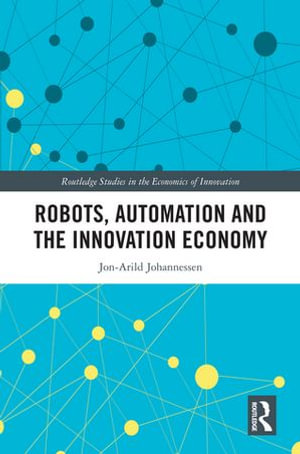
eTEXT
Robots, Automation and the Innovation Economy
eText | 30 December 2024 | Edition Number 1
At a Glance
eText
$281.60
or
Instant online reading in your Booktopia eTextbook Library *
Read online on
Desktop
Tablet
Mobile
Not downloadable to your eReader or an app
Why choose an eTextbook?
Instant Access *
Purchase and read your book immediately
Read Aloud
Listen and follow along as Bookshelf reads to you
Study Tools
Built-in study tools like highlights and more
* eTextbooks are not downloadable to your eReader or an app and can be accessed via web browsers only. You must be connected to the internet and have no technical issues with your device or browser that could prevent the eTextbook from operating.
ISBN: 9781040295946
ISBN-10: 1040295940
Series: Routledge Studies in the Economics of Innovation
Published: 30th December 2024
Format: ePUB
Language: English
Publisher: Taylor & Francis
Edition Number: 1
You Can Find This eBook In
Non-FictionEconomicsEconomic Theory & PhilosophyEconomics of Industrial OrganisationIndustry & Industrial StudiesMedia, Entertainment, Information & Communication IndustriesInformation Technology IndustriesDevelopment Economics & Emerging EconomiesLabour EconomicsBusiness & ManagementManagement & Management TechniquesManagement of Specific Areas
This product is categorised by
- Non-FictionEconomicsEconomic Theory & Philosophy
- Non-FictionEconomicsEconomics of Industrial Organisation
- Non-FictionIndustry & Industrial StudiesMedia, Entertainment, Information & Communication IndustriesInformation Technology Industries
- Non-FictionEconomicsDevelopment Economics & Emerging Economies
- Non-FictionEconomicsLabour Economics
- Non-FictionBusiness & ManagementManagement & Management TechniquesManagement of Specific AreasResearch & Development Management
- Non-FictionComputing & I.T.Computer ScienceArtificial Intelligence
- Non-FictionBusiness & ManagementSales & Marketing























